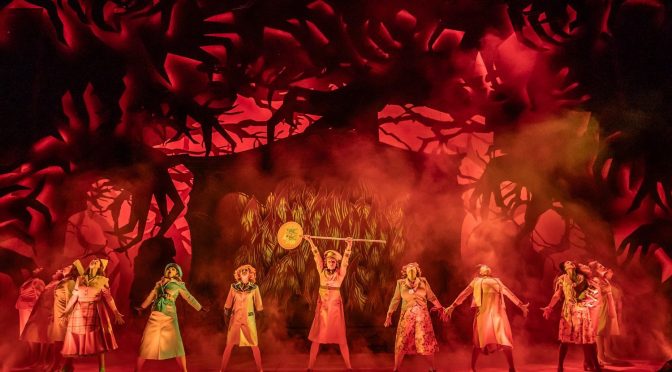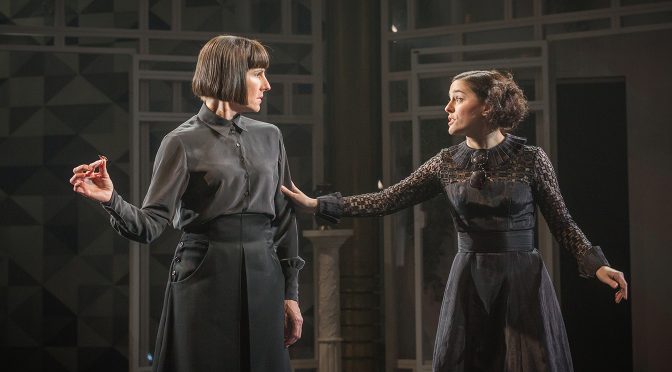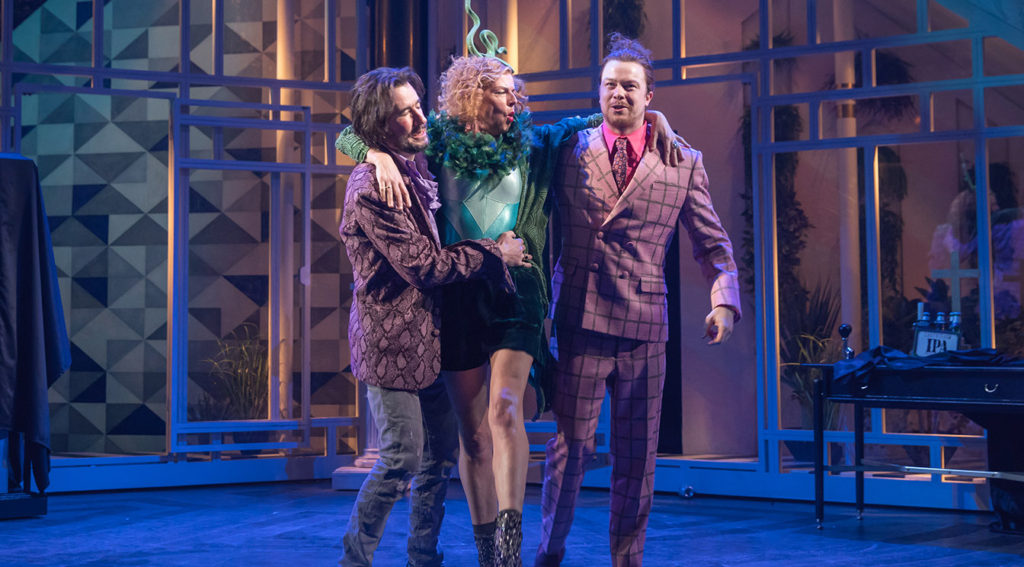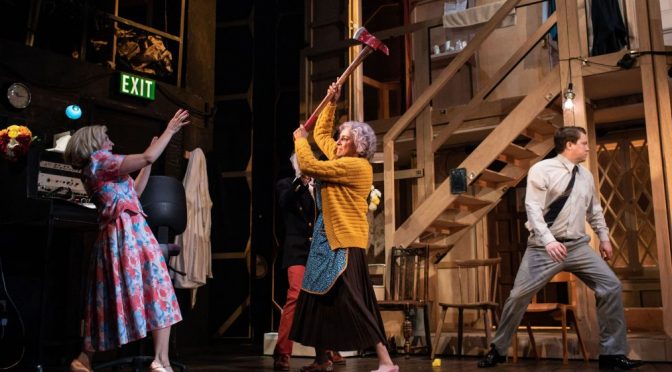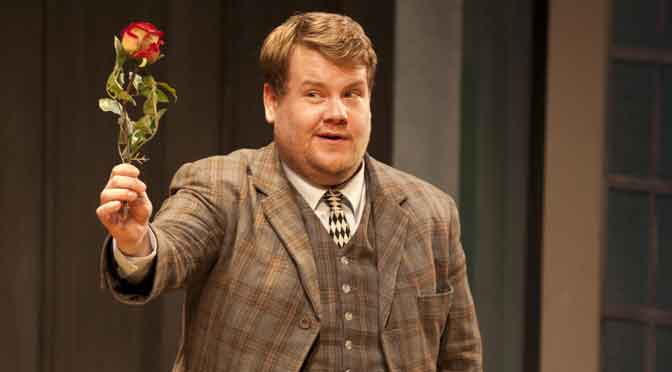Given its record of seasonal family treats, you might describe the National Theatre’s Christmas shows as venerable. But few have been as eagerly anticipated as this new musical adaptation of Roald Dahl’s classic. It’s a thrill to report that it lives up to expectations.
Lucy Kirkwood’s book is superb. The action is swift and ambitious, scary and complete with the surreal touches that Dahl fans love. It takes kids seriously – specifically that they can be interested in mortality – so, it’s suitably dark as well as humorous, with risqué touches that make it wickedly funny.
It can’t be as easy as Kirkwood, and director Lyndsey Turner, make it look. Not only is the book well-loved, but there’s a big coven of witches who need special effects – they turn children into mice – and that’s before you add singing and dancing. The budget and the cast are huge, the illusions (Chris Fisher and Will Houstoun) grand, and Lizzie Clachan has excelled herself with the set and costume design.
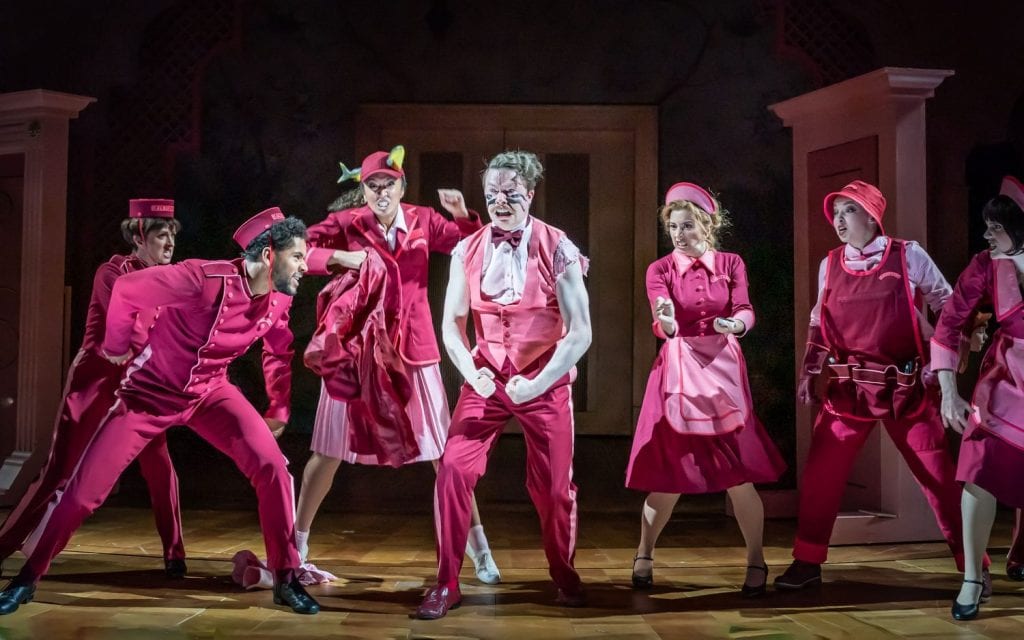
Turner might use the Olivier better – the show would be more at home in a proscenium theatre. But, like Kirkwood, she has excelled at making the most of the characters – a collection of roles performers can get stuck into and enjoy themselves with. There’s our hero Luke’s witch-hunting grandmother, the manager of a hotel and its chef. These are super roles for Sally Ann Triplett, Daniel Rigby and Irvine Iqbal, respectively. Suitably larger than life, the adults take over from the children (who are very good, by the way).
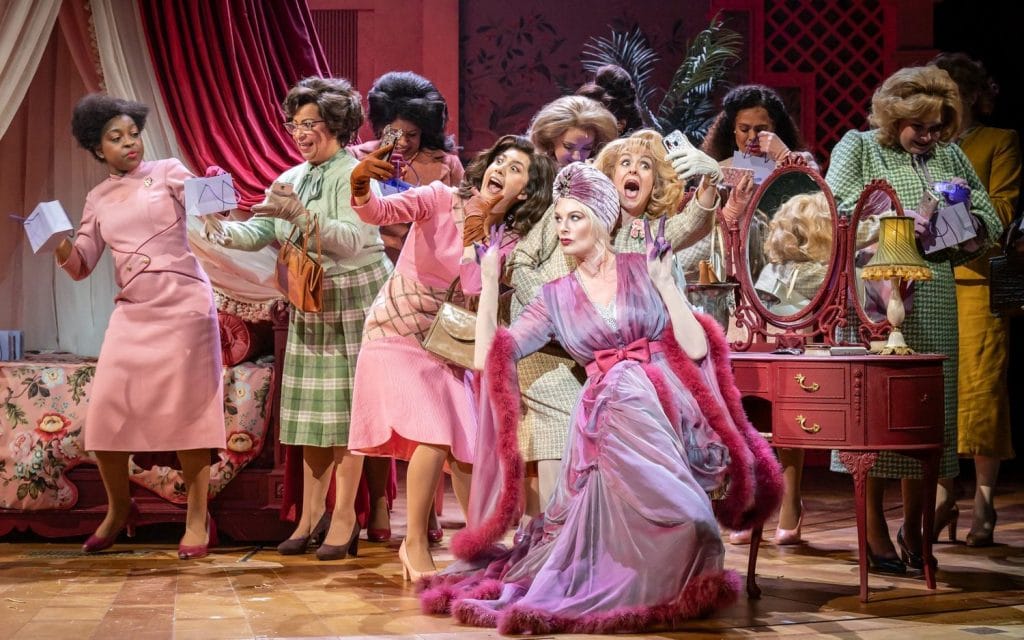
Not forgetting, of course, the witches themselves. Katherine Kingsley has a great time as the Grand High Witch, bringing some Dietrich-style glamour to the role. She commands the crowd and has a powerful voice. But all the coven are strong and work superbly as an ensemble; they sound great right from the brilliant opening number, while Stephen Mear’s choreography has exciting touches.
And Dave Malloy’s music is fantastic. That there are so many adult voices in the show helps. The songs are more than catchy and varied, just as the lyrics, from Malloy and Kirkwood, are more than witty and clever. There are surprises here… hurrah! Careful modern touches (like TikTok) make the lines sparkle. The music has bold moments of percussion, repetition and acapella.
Can you remember the last time a family show felt this fresh and exciting? Oh yes, it was Matilda! The ‘other’ Dahl musical and still one of the best shows around. There are similarities, of course, but a lot here is bigger – the ambition and the sound. What they really have in common is their originality – both have a voice of their own, and everyone, of any age, can enjoy them.
Until 27 January 2024
Photos by Marc Brenner

